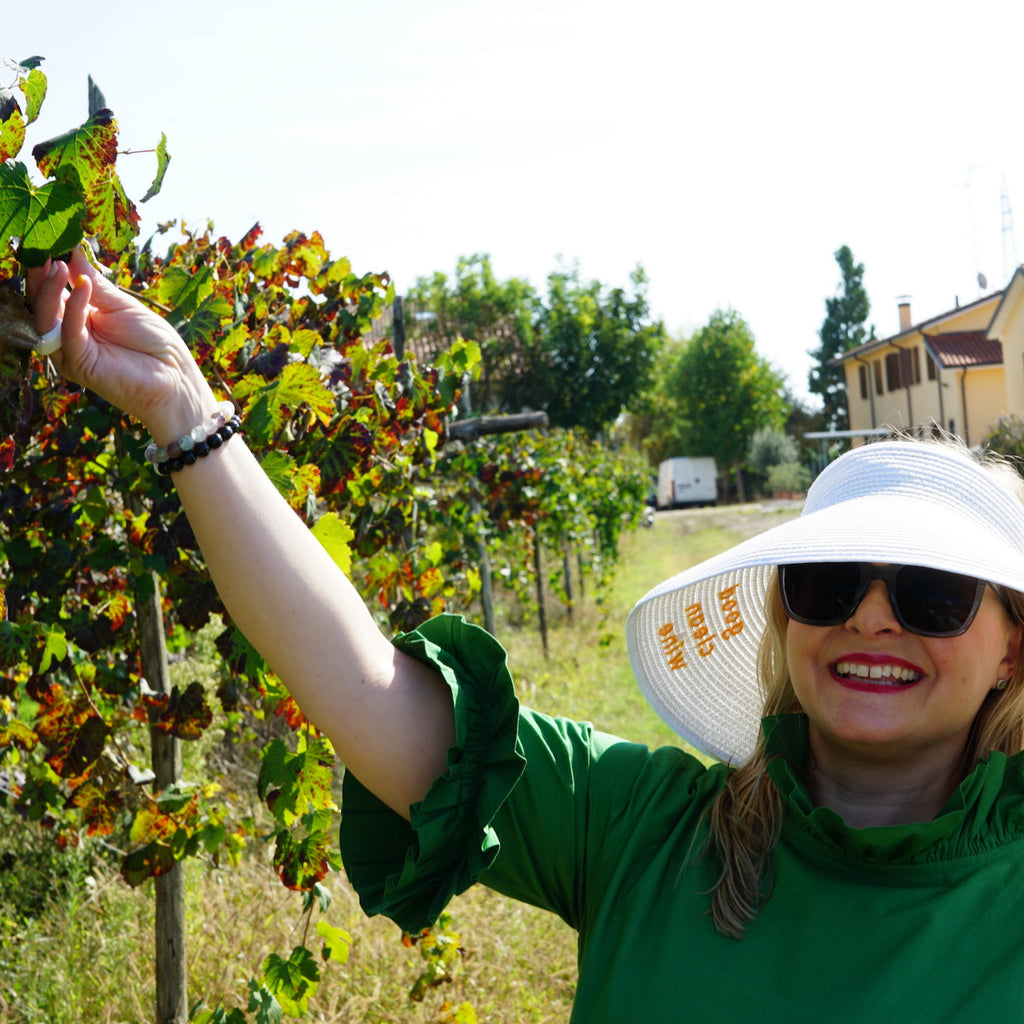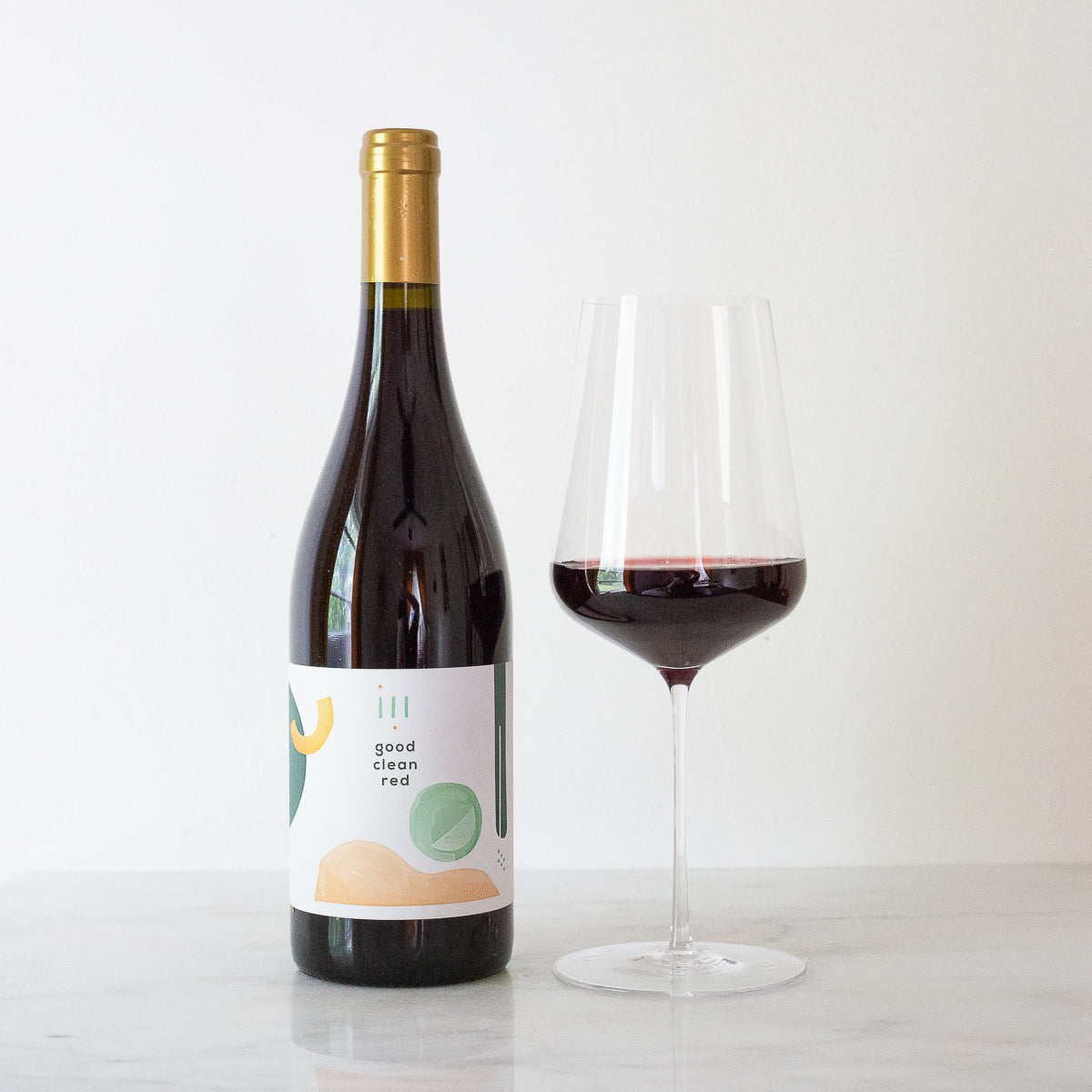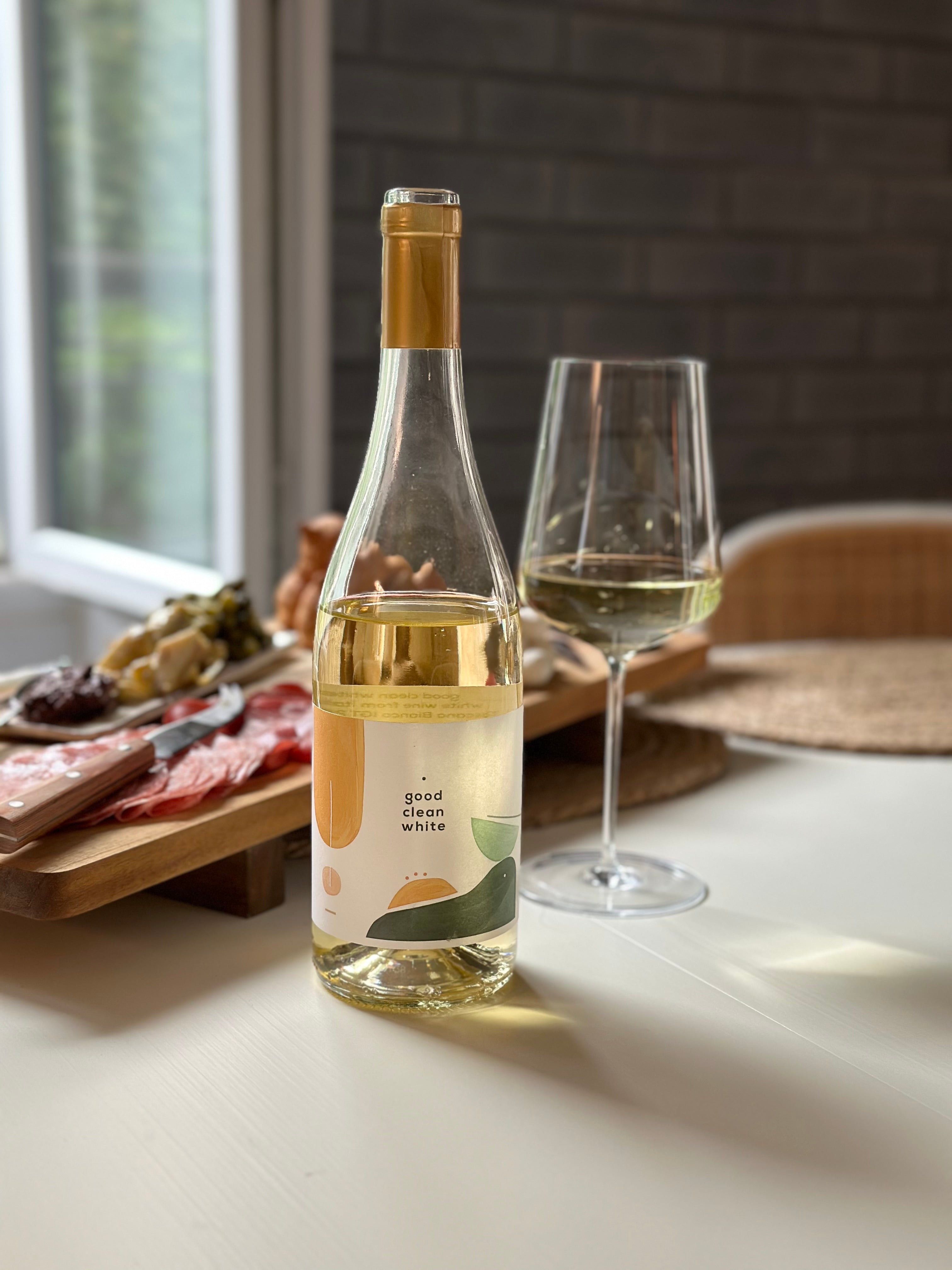
It’s in the name — Good Clean Wine is made clean with no sugar or concentrate, no sulfites added at fermentation, no dye, no artificial flavors, and no tartaric acid.
But what about the grapes?
Travel with us to Italy as we dive into the sustainable farming practices surrounding our hand-picked grapes and provide some background on what it means to be a true organic wine made on an organic farm (and why it might not be what you think). Andiamo!
What is organic farming?
Organic farming is an agricultural practice that requires use of naturally derived materials plus adherence to strict rules that vary from country to country. It’s also quite expensive to become certified organic in most countries, and many small farmers can’t afford it.
Wait, so does organic farming use pesticides?
Short answer? Yes — they’re just organic pesticides.
Organic pesticides are naturally occurring chemicals (typically derived from plants and other organic matter) that kill pests, just like any other conventional pesticides. This term can be deceiving, since these chemicals aren’t any better for the environment, the native species, or the humans that will eventually be consuming the produce.
When it comes to pesticides, it’s the dosage (not necessarily the chemical) that makes them poisonous. Types of organic pesticides like botanical insecticides or minerals like boric acid may be derived from nature, but that doesn’t mean they aren’t toxic — some organic pesticides are even more harmful than their synthetic counterparts.
At Good Clean Wine, we actually use the sexual confusion method of controlling pests. This means that instead of spraying chemicals (whether organic or synthetic), our farmers spread pheromones to confuse insects and parasites so that they do not mate and spoil the grapes. This reduces the use of chemicals, diesel fuel, and fresh water.
Our vineyards also use biodiverse farming methods, which means instead of just growing rows and rows of grapes, many types of crops are grown together so the natural balance of bugs, birds, and animals is naturally maintained and one type of pest doesn’t overpopulate.
Our good clean approach to farming
If you were to take a walk with us through our Italian vineyards, you’d find farmers and winemakers using utmost care and attention in grape growing — treating the grapes they produce with the same love that they pour back into their local communities.
Whenever possible, our grapes are grown using organic practices, but we do not claim our wines as biodynamic, vegan, or organic because those are all certifications our wineries have chosen not to get. We believe organic and biodynamic procedures are a great guideline to follow, but we also know that just using one solution doesn’t work — in nature or in winemaking. Nature must be listened to, and our grape growers and winemakers react accordingly, day by day, month by month, and year by year.
Our farms prioritize social and environmental sustainability above all else, resulting in wines that you and the environment will both love.
For more specific information regarding our farming practices, take a peek at this post about our good clean winemaking.




